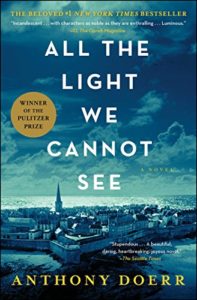
Though I read a great deal of historical fiction, I gravitate toward certain topics, as you can see in the list below of more than 300 enlightening historical novels I’ve, read, enjoyed, and reviewed over the past decade and a half. My favorite subjects are European history, including many historical spy novels; World War II; American history, especially political history; and Asian and African history.
You’ll also find that several authors show up multiple times: Geraldine Brooks, Thomas Fallon, Olen Steinhauer, Alan Furst, Amitav Ghosh, and Joseph Kanon—in the last three cases, because of especially insightful series they’ve written.
The top list below is my choice of the 25 most enlightening historical novels. Following that list, I’ve grouped all 100 novels below in seven categories; the 25 top titles are drawn from those categories and appear twice. Within each list, the books are listed in alphabetical order of the authors’ last names. (For a much longer list of historical novels categorized by country, click here.)
This post was updated on April 18, 2024.
25 most enlightening historical novels
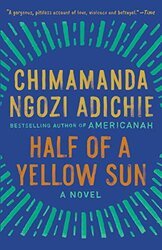
Love, loss, and war in post-independence Africa (Half of a Yellow Sun, by Chimanada Ngozi Adichie)
Half of a Yellow Sun recounts the events of the 1960s that culminated in the lopsided Biafran war of independence (1967-70) that pitted the ill-equipped Igbo (Ibo) people of southeastern Nigeria against the massive forces of their national government, actively backed by the British. This is the gripping story of twin Igbo sisters, Olanna and Kainene, daughters of a Nigerian “Big Man” who has accumulated great wealth through corruption; their lovers, Odenigbo and Richard, the one an Igbo professor of mathematics who preaches revolution, the other a Brit and would-be writer; and young Ugwu, a villager who grows to manhood as Odenigbo’s houseboy. Read the review.
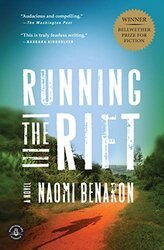
A brilliant novel of love, hope, and the Rwanda genocide (Running the Rift, by Naomi Benaron)
The Rwanda genocide is the central event in Running the Rift, a remarkable novel that tells the story of a young Tutsi man, Nkuba Jean Patrick, a supremely talented runner who aspires to compete in the 1996 Olympics in Atlanta. The tale begins when Jean Patrick is a boy just beginning to detect his gift, and it explores his life, and the reality he experienced, in the years of increasing violence in the late 1980s and early 1990s, through the terrible trials of 1994, and for several years afterward.
In language enriched by a generous dollop of Kinyarwanda (the official language of Rwanda) terms and phrases, we follow Jean Patrick’s life through his interactions with his schoolteacher father, his many brothers and sisters, his few close friends, the headmaster of his school, his running coach, and, later, his girlfriend and a young American couple who move to the country. Read the review.
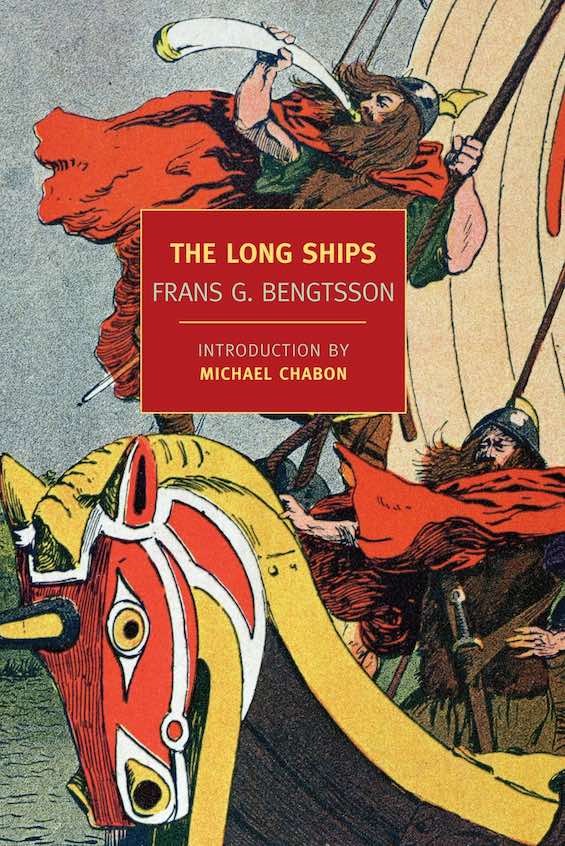
A Viking saga reminiscent of myth and legend (The Long Ships by Frans B. Bengtsson)
For nearly three centuries (793–1066 CE) during the Middle Ages, Norsemen from Denmark, Sweden, and Norway ran rampant through Europe from present-day Russia to Spain, England, France, Italy, and Ireland. Called Vikings, they raided coastal communities all around the European continent, plundering and pillaging as they went. They colonized Normandy, England, Iceland, Greenland. For a time, they also settled in what is today Newfoundland nearly 500 years before Columbus landed in the Caribbean. For an understanding of Viking culture, there is no better guide than Frans G. Bengtsson’s epic novel, The Long Ships. Read the review.
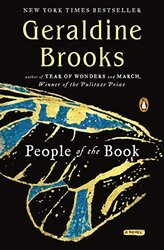
The strange story of the Sarajevo Hagadah (People of the Book, by Geraldine Brooks)
Pulitzer-Prize-winning author Geraldine Brooks will carry you on the eloquence of her prose through the five-century journey throughout Southern Europe of the fabled Sarajevo Hagadah. This ceremonial book, available in innumerable versions, is put to work every year in Jewish Seders throughout the world to celebrate Passover. In Brooks’ hands, however, this remarkable example of the bookmaker’s art serves as a time machine, taking us from Seville in the late 15th Century, to Sarajevo and Sydney in the early 21st. More to the point, the Sarajevo Haggadah emerges in the pages of People of the Book as a brilliant symbol of reconciliation among Jews, Muslims, and Christians. Read the review.
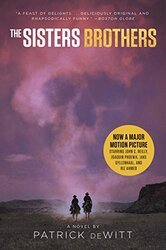
Hired killers, the California Gold Rush, and lots of surprises (The Sisters Brothers, by Patrick DeWitt)
Here’s a Western that’s more Deadwood than Gunsmoke. It had to be: it was shortlisted for the Man Booker Prize, and the panjandrums who manage that process aren’t known to show favor to run-of-the-mill genre writing. The Sisters brothers of the title are notorious hired killers in the employ of a mysterious and powerful man known only as the Commodore. Charlie, the older of the two, is a sociopath whose initiation into murder began when he shot his father to death at the age of 10. The younger man, Eli, is a gentler soul—except when he loses his temper, which seems to happen whenever he and Charlie are in the final stages of a job for the Commodore. Oh, and one more thing: the dialogue is hilarious. Read the review.
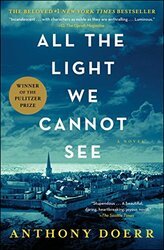
This novel richly deserves the Pulitzer Prize it won (All the Light We Cannot See, by Anthony Doerr)
Here is a wildly original boy-meets-girl story. Two teenagers are caught up in the frenzy and the mortal dangers of World War II: a German boy who is extraordinarily clever with all things electronic, and a blind French girl who reads Jules Verne. Author Anthony Doerr explores the trajectory of their lives in parallel, moving them inexorably toward a fateful intersection in the book’s surprising climax. Like millions of other Europeans, Marie-Laure LeBlanc and Werner Pfennig are victims of the war, but their stories are fresh: these are uniquely drawn individuals, each masterfully portrayed by a writer at the top of his form. Read the review.
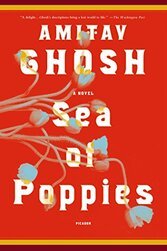
A superb historical novel about the opium trade by Amitav Ghosh (Sea of Poppies – Ibis Trilogy #1)
Amitav Ghosh reaffirms his place as one of contemporary India’s greatest writers with this extraordinarily rich tale of class conflict, exploitation, and forbidden love against the background of the opium trade. The story is set in 1838, shortly before the First Opium War in China which set the stage for mounting conflict in India, as the opium trade declined. Ghosh’s unforgettable characters quickly take on lives of their own, thinking and speaking in their own, often uniquely personal variations on the languages and dialects of the era. Read the review.

The classic Vietnam novel by Graham Greene (The Quiet American by Graham Greene)
Graham Greene (1904 -91) hovers near the top of any list of the twentieth century’s most readable and insightful spy novelists. He was shortlisted for the Nobel Prize for Literature in 1966 and 1967, confirming his bona fides as an author who roamed far outside the limits of genre. And of his more than two dozen novels, The Quiet American is widely recognized as among the handful that retain their power more than half a century later. In its portrayal of a hopelessly naive CIA officer who blindly follows a warped ideological view of the insurrection against the French in Indochina, this classic Vietnam novel proved prophetic just a decade later, as the United States stumbled headlong into a profoundly misguided war there. Read the review.
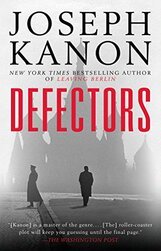
A superb new novel about defectors in Moscow (Defectors by Joseph Kanon)
The disappearance of British diplomats Donald MacLean and Guy Burgess in 1951 and the subsequent revelation in 1956 of them as defectors to the Soviet Union shocked the world and has subsequently provided fodder for a virtual cottage industry of spy novels. Only much later did it come to light that MacLean and Burgess were just two of the notorious Cambridge Five. Both men make cameo appearances in Joseph Kanon‘s terrific new spy novel, Defectors. Read the review.
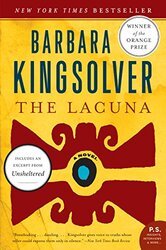
Leon Trotsky, Diego Rivera, and the Red Scare (The Lacuna, by Barbara Kingsolver)
The protagonist of The Lacuna is Harrison Shepherd, a writer of best-selling historical romance novels set in the empires of the Aztecs and the Maya. Born shortly after World War I, son of a minor American federal official and a desperate Mexican woman who sees him as a mealticket, Shepherd crosses borders to become a first-hand witness to the Bonus Army march and encampment in Washington under Herbert Hoover, the rise to fame of Diego Rivera and Frida Kahlo, the assassination of Leon Trotsky, and the slow, painful unfolding of the Red Scare that seized hold of the United States in the early years of the Cold War. The Lacuna is crammed with unforgettable portraits of historic figures. Read the review.
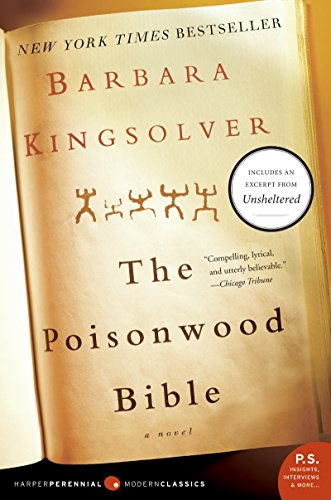
A brilliant novel explores the legacy of colonialism in the Congo (The Poisonwood Bible by Barbara Kingsolver)
Some of the greatest works of literature in the 20th century addressed the theme of colonialism. Things Fall Apart by China Achebe. Joseph Conrad’s Heart of Darkness. The Wretched of the Earth by Franz Fanon. And E. M. Forster’s A Passage to India. There are many more. The Poisonwood Bible by Barbara Kingsolver isn’t routinely listed among them. But it should be. Although much of the action takes place after the Belgians have granted independence to the country, the book is all about the terrible, lingering effects of colonialism in the Congo. Written in gorgeous prose and firmly rooted in the tragic events of the early 1960s, the novel stands in testimony to the price paid by millions for the greed and racism of the white Europeans who plundered their land.
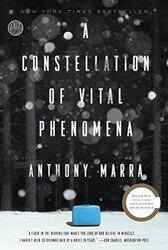
A searing inquiry into life during the Chechnyan War (A Constellation of Vital Phenomena, by Anthony Marra)
The principal characters of A Constellation of Vital Phenomena are:
- Akhmed, “the worst doctor in Chechnya,” who cut medical school classes to study art
- Sonja Rabina, a brilliant ethnic Russian surgeon who left a prestigious residency in London to return home when war broke out
- An eight-year-old girl named Havaa who became an orphan when “the Feds” burned down her house and dragged away her father (as we learn in the opening lines of the novel), and
- Khassan, an aging history scholar whose faith in Marxism was shattered, and his life’s work rendered pointless, by the revelations following the collapse of the Soviet Union. Read the review.
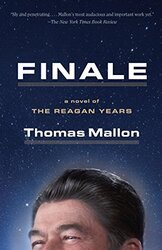
Ronald Reagan deconstructed in a new Thomas Mallon novel (Finale: A Novel of the Reagan Years, by Thomas Mallon)
In Thomas Mallon’s new novel, Finale: A Novel of the Reagan Years, our fortieth President emerges as an enigmatic figure. Alternately muddle-headed and brilliantly articulate, Mallon’s Reagan is hard to read. In the author’s telling, Nancy Reagan sums up her view of the man after half a century of marriage in that spirit: “she didn’t know who he was, and she never had.” Another character in the novel remarks in conversation that “‘he’s the most impersonally warm man I’ve ever encountered. [His staff] won’t know how to figure him out.'” Yet another looked on him as “the most deeply shallow man she’d ever met.” Read the review.
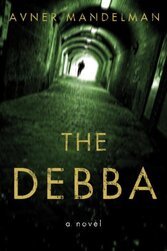
A superb novel digs for roots in Israel’s modern history (The Debba, by Avner Mandelman)
I’ve often wondered how the current intractable standoff between Israelis and Palestinians came about. “It’s obvious, you’ll say. “Jewish immigrants from Europe settled on Palestinian land,” and of course that’s true. But doesn’t it seem unlikely that every Israeli became an Arab-hater shortly after arriving, and every Arab a Jew-hater just as quickly? Weren’t there those on both sides who opposed the fighting and worked for reconciliation through the years of Israel’s “pre-history” (before 1948) and in the decades since? Surely, the latter-day Peace Now movement had its precursors in an earlier time. The Debba, though framed as a murder mystery (and an excellent one at that), is a serious fictional inquiry into this question. Read the review.
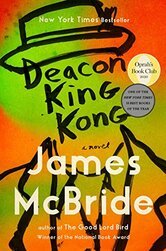
Unforgettable characters in this delightful new novel (Deacon King Kong by James McBride)
Set in 1969, Deacon King Kong relates the saga of Cuffy Lambkin, a migrant from Possum Point, South Carolina, to South Brooklyn. He’s best known as Sportcoat, a name his mother imposed on him as a child, but some at the Cause Houses call him Deacon King Kong behind his back. Cuffy is an alcoholic—no, not just that; a drunkard—who is rarely seen without a bottle of King Kong to his lips. That’s the moonshine his best friend, Rufus, known as Hot Sausage, produces in the basement of the building where he works as the janitor. Read the review.
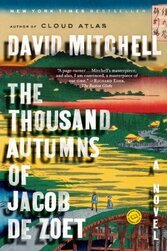
A beautifully written tale of love, courage, and faith (The Thousand Autumns of Jacob de Zoet by David Mitchell)
Imagine yourself in a land far, far away, in a time long passed from memory. Now imagine this: Napoleon Bonaparte is striding across Europe, and the fledgling American republic is edging ever closer toward the expansionist vision of Thomas Jefferson. The Dutch East India Company is gasping its last breath. The Dutch mercantile empire, already shadowed by the mighty British Navy, has gone adrift as its homeland succumbs to the little Corsican general. In this fateful time, as the world slips from the 18th century into the 19th, you find yourself in a tiny Dutch trading post stranded on the shores of Nagasaki. You’re there through the magic of a brilliant historical novel. Read the review.
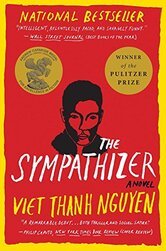
The Vietnam War through Vietnamese eyes (The Sympathizer, by Viet Thanh Nguyen)
The Sympathizer opens in April 1975 as troops of the North Vietnamese army and the National Liberation Front (Viet Cong) are closing in on Saigon. The remnants of the American mission and many thousands of South Vietnamese officials and other collaborators are frantically fighting to claim the few remaining spaces on American airplanes available for the evacuation. In the midst of this chaos we meet the narrator, a captain in the South Vietnamese army. He introduces himself this way in the opening line of his account: “I am a spy, a sleeper, a spook, a man of two faces.” He is, in fact, the Sympathizer of the title — a secret agent of the NLF actually living in the home of the General who commands the South Vietnamese security police, the Special Branch. He is Eurasian, the son of a French priest and a poor Vietnamese woman, and regularly receives abuse as a result. Read the review.
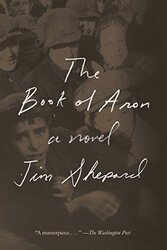
A brilliant novel of the Warsaw Ghetto (The Book of Aron, by Jim Shepherd)
This is not one of those predictable tales of the heroic but doomed Warsaw Ghetto uprising. The action takes place in the months leading up to the uprising. The story revolves around the life of a boy named Aron, the son of a poor Jewish couple from a Polish shtetl near the Lithuanian border. Aron is eight years old when the tale begins in 1936, but the book focuses on the tragic months in 1942 when he is thirteen. As the Nazis progressively shrink the borders of the Ghetto and starve its residents, Aron and his gang of twelve- and thirteen-year-olds turn to petty crime in an effort to survive. They become adept in sneaking through gates or crawling through tunnels to the streets outside the Ghetto, smuggling food back in for themselves and their families. Read the review.
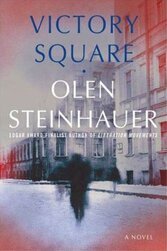
A powerful tale of life in Eastern Europe during the fall of Communism (Victory Square – Ruthenia Quintet #5, by Olen Steinhauer)
Steinhauer introduces us to an aging homicide cop, Emil Brod, now Chief of the Militia, whom we met as a young rookie when he joined the Militia’s Homicide Squad in the country’s capital in 1948. Brod was the protagonist of the first novel in the cycle, The Bridge of Sighs, and has popped up throughout. Now just days from retirement, Brod is forced to contend with an unraveling government, a series of shocking murders, a best friend engaged at the very center of the revolutionary movement, and an adoring wife even older than he who wants him to leave the capital early, before the inevitable explosion. Read the review.
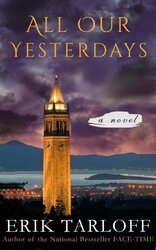
Sex, drugs, and revolution: Berkeley in the 70s (All Our Yesterdays, by Erik Tarloff)
All Our Yesterdays is a brilliant chronicle of life among the chosen few in Berkeley over the past four decades. Shifting from first-person accounts of relationships on and around the UC Berkeley campus from 1968 into the 70s, to third-person treatments largely set in the present, Tarloff spins a fascinating tale of six friends whose lives together embody the experience of a generation in this wonderfully insular community: a clinical psychologist in private practice (one of the town’s thousands of therapists), a prominent left-leaning lawyer who is also a wine snob; a rock critic and social commentator who writes books about the deeper meaning of popular culture; a brilliant professor of English literature; and a charming revolutionary activist who identifies closely with the IRA, having gone so far as to sport an Irish accent. Read the review.
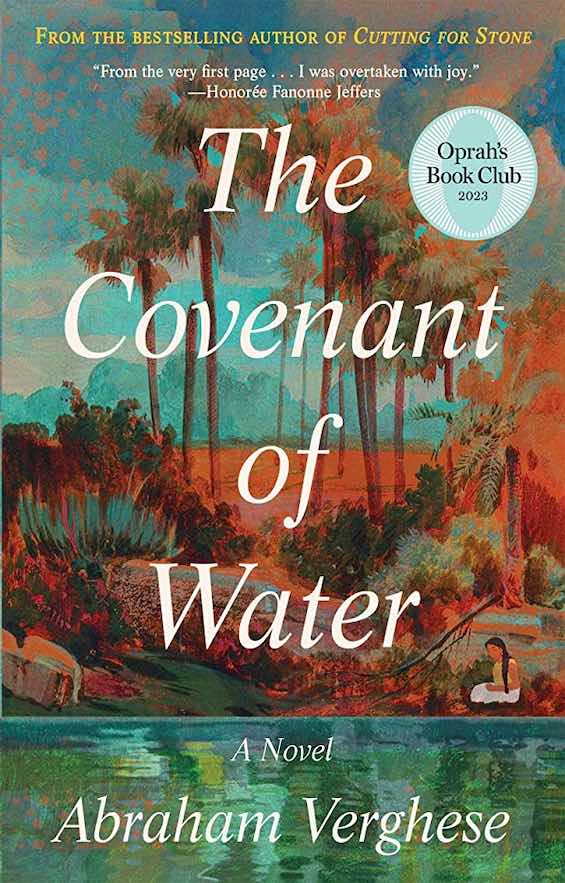
A deeply moving tale of life, love, and loss in 20th-century India (The Covenant of Water, by Abraham Verghese)
The Covenant of Water opens as the twentieth century dawns. We meet the woman who came to be called Big Ammachi (Elder or Honored Mother in the local language). Then, as a terrified twelve-year-old girl, she meets her new husband, a forty-year-old widowed farmer, at their wedding. But she will grow to love him, as she bears two living children over the years. First, a girl called Baby Mol who proves never to outgrow the mental age of five; she retains the name throughout her life. And, second, a bright boy named Philipose. But, like his big sister, Philipose has been born with a “condition” that sets him apart from others: he has a deathly fear of water, a condition that has proven lethal to many of his relatives when they drowned in encounters with rivers and streams. No one understands why. And that medical mystery lies at the heart of this novel. Over three-quarters of a century, three heroic physicians do their utmost to solve the mystery of Philipose’s condition. And it is only late in the tale that we finally witness one of them come up with an explanation. It’s a deeply moving tale and a heart-warming testament to the triumph of modern medical science.
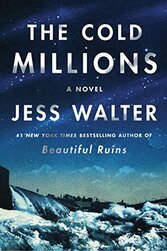
A gripping tale about the early American labor movement (The Cold Millions by Jess Walter)
The Cold Millions opens in 1909 in Spokane, Washington, then a bustling frontier city and one of the nation’s most active centers of labor organizing. Gregory (“Gig”) Dolan, a laborer, has joined the IWW (Industrial Workers of the World) in a protest against an anti-union ordinance outlawing “soapboxing.” Gig is among the five hundred men rounded up and jailed in a protest against the law. Unfortunately, his sixteen-year-old brother, Ryan (“Ry”), has defied Gig’s demand he stay away and is thrown in jail, too. Read the review.
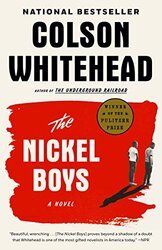
A brilliant novel dramatizes life under Jim Crow (The Nickel Boys by Colson Whitehead)
Abandoned by his parents, Elwood lived in Tallahassee, Florida with his grandmother. He was bright and hardworking and passed countless hours listening again and again to the recorded speeches of Dr. Martin Luther King, Jr. With a promising school record, an unusually alert and helpful teacher during Elwood’s junior year arranges for him to take advanced classes in a junior college nearby. But, hitchhiking on his way to register there, he’s picked up by a stranger who had stolen the car he was driving. And neither the cops nor the judge believed either Elwood’s or the man’s protestations that they didn’t know each other. Elwood was summarily sentenced to the Florida Industrial School for Boys, named for its long-time director, Trevor Nickel. And thus Elwood became a Nickel Boy. Read the review.
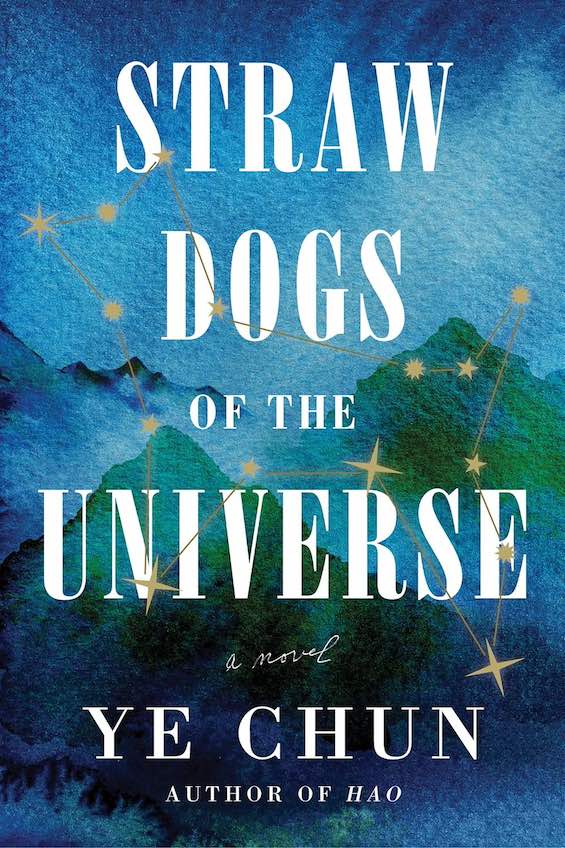
A deeply moving immigrant story set in the 19th century (Straw Dogs of the Universe by Ye Chun)
The Chinese who flocked to America in the mid-19th century encountered racism and violence unmatched in ferocity by any other immigrant population to our shores. Many encountered mobs who burned their homes and murdered them wholesale—and a government that sided with their attackers. Even in the quiet times between pogroms, they met with hostility a hair’s breadth away from murderous rage. So, the question arises how they could possibly have endured. And that’s the question at the heart of Ye Chun’s explosive debut novel about Chinese immigrants, Straw Dogs of the Universe. Read the review.
Enlightening historical novels: World War II
Dramatizing anti-Nazi resistance in Germany during World War II (The Traitor by V. S. Alexander)
A reluctant hero in World War II (The Paris Architect by Charles Belfoure)
Resistance, and collaboration, among the rich and famous of Paris (Mistress of the Ritz by Melanie Benjamin)
One family’s story, from the pogroms to the ovens of Auschwitz (The Postcard by Anne Berest)
A touching tale of love and betrayal in World War II Italy (The Tuscan Child, by Rhys Bowen)
Rescuing anti-Nazi refugee artists from WWII France (The Postmistress of Paris by Meg Waite Clayton)
The human cost of World War II (Everyone Brave Is Forgiven, by Chris Cleave)
What if Japan hadn’t surrendered? (1945, by Robert Conroy)
A deeply affecting novel of the Holocaust (The German Girl, by Armando Lucas Correa)
A heart-rending Holocaust story (The Daughter’s Tale by Armando Lucas Correa)
A novel about memory evokes the siege of Leningrad (The Madonnas of Leningrad, by Debra Dean)
In an alternate history, the Nazis occupy England (SS-GB, by Len Deighton)
An intensive look a single RAF Bomber Command mission in World War II (Bomber by Len Deighton)
This novel richly deserves the Pulitzer Prize it won (All the Light We Cannot See, by Anthony Doerr)
Jennifer Egan’s bestselling historical novel is a winner (Manhattan Beach by Jennifer Egan)
The 40th anniversary edition of Ken Follett’s classic WWII spy novel (The Eye of the Needle by Ken Follett)
A superb historical espionage novel (The Foreign Correspondent—Night Soldiers #9, by Alan Furst)
A brilliant novel of the French Resistance (Red Gold—Night Soldiers #5, by Alan Furst)
One of the best espionage novels of recent years (Kingdom of Shadows—Night Soldiers #6, by Alan Furst)
Spies at work in WWII Istanbul and Rumania (Blood of Victory—Night Soldiers #7, by Alan Furst)
A gripping spy story set on a ocean freighter in World War II (Dark Voyage—Night Soldiers #8, by Alan Furst)
Alan Furst’s superb novel, “Spies of the Balkans” (Spies of the Balkans—Night Soldiers #11, by Alan Furst)
At the dawn of World War II, a Hollywood film star in an espionage novel (Mission to Paris—Night Soldiers #12, by Alan Furst)
Arms merchants and spies in a thriller set during the Spanish Civil War (Midnight in Europe—Night Soldiers #13, by Alan Furst)
Vive la Resistance! (A Hero of France—Night Soldiers #14, by Alan Furst)
Alan Furst on the French Resistance (Under Occupation, Night Soldiers #15, by Alan Furst)
An extraordinary World War II spy story grounded in historical fact (The Best of Our Spies, by Alex Gerlis)
Nothing noble about the nobility in 15th century England (The Kingmaker’s Daughter – Plantagenet & Tudor Novels #4, by Philippa Gregory)
The drama before the Warsaw ghetto uprising (We Must Not Think of Ourselves by Lauren Grodstein)
A deeply affecting novel of the French Resistance (The Nightingale, by Kristin Hannah)
Robert Harris explains why Neville Chamberlain went to Munich (Munich by Robert Harris)
The cost of total war was clear in Berlin after World War II (The Good German by Joseph Kanon)
Hunting Nazis in Argentina (The Accomplice by Joseph Kanon)
Intrigue among German emigrés in postwar Hollywood (Stardust by Joseph Kanon)
A vivid snapshot of Nazi Berlin (March Violets, by Philip Kerr)
A serial killer in Nazi Germany (The Pale Criminal, by Philip Kerr)
Another excellent novel in the Bernie Gunther series (A German Requiem, by Philip Kerr)
An anti-Nazi detective in Hitler’s Germany (The One from the Other, by Philip Kerr)
An eye-opening detective novel about Nazis in Argentina (A Quiet Flame, by Philip Kerr)
From Hitler’s Germany to Batista’s Cuba (If the Dead Rise Not, by Philip Kerr)
Bernie Gunther’s life in flashbacks (Field Gray, by Philip Kerr)
A hard-boiled detective in Nazi Germany (Prague Fatale, by Philip Kerr)
Mass murder in the Katyn Forest (A Man Without Breath, by Philip Kerr)
Cynicism and romanticism in Nazi Germany (The Lady from Zagreb, by Philip Kerr)
An exciting chapter in the Bernie Gunther saga (The Other Side of Silence, by Philip Kerr)
In Philip Kerr’s latest, Bernie Gunther confronts top Nazis and the Stasi (Prussian Blue, by Philip Kerr)
Philip Kerr’s last Bernie Gunther novel? (Greeks Bearing Gifts, by Philip Kerr)
Best friends become enemies in World War II (Beyond the Shadow of Night by Ray Kingfisher)
European refugees add luster to wartime Hollywood (Mercury Pictures Presents by Anthony Marra)
A brilliant novel explores life in Nazi Europe (The Glass Room, by Simon Mawer)
A well-written novel about British espionage in World War II (Tightrope, by Simon Mawer)
Black soldiers on the front line in Tuscany in World War II (Miracle at St. Anna by James McBride)
Holocaust memories: A deeply moving love story set at Auschwitz (The Tattooist of Auschwitz, by Heather Morris)
A wartime mystery wrapped in fog (Warlight by Michael Ondaatje)
That famous Soviet female sniper in WWII (The Diamond Eye by Kate Quinn)
A wild WW2 caper by the Belgian Resistance (The Ventriloquists by E. R. Ramzipoor)
A brilliant novel of the Warsaw Ghetto (The Book of Aron, by Jim Shepherd)
Hillary Rodham before—and after—Bill Clinton (Rodham by Curtis Sittenfeld)
A standalone novel from the author of the Arkady Renko stories (December 6 by Martin Cruz Smith)
Enlightening historical novels: US politics
Who wields the real power in Washington, DC? (Echo House, by Ward Just)
A terrific political history novel (Dewey Defeats Truman, by Thomas Mallon)
America’s third Red Scare (Fellow Travelers, by Thomas Mallon)
Watergate through a novelist’s eyes (Watergate, by Thomas Mallon)
Ronald Reagan deconstructed in a new Thomas Mallon novel (Finale: A Novel of the Reagan Years, by Thomas Mallon)
A novelist’s sympathetic portrait of George W. Bush (Landfall, by Thomas Mallon)
Was politics during the Great Depression really like this? (All the King’s Men, by Robert Penn Warren)
Enlightening historical novels: American history
Doctor Zhivago and the women in the CIA typing pool (The Secrets We Kept by Lara Prescott)
Isabel Allende’s triumphant new novel spans the Western Hemisphere (Maya’s Notebook, by Isabel Allende)
James Bond, lies within lies, and coming of age in the 1960s (True Believers, by Kurt Andersen)
Revisiting black humor (not Black humor) (Sneaky People, by Thomas Berger)
In Colonial America, the first Native American goes to Harvard (Caleb’s Crossing, by Geraldine Brooks)
This Civil War novel brings hidden truths to light (March, by Geraldine Brooks)
A novel about a famous racehorse sheds light on slavery (Horse, by Geraldine Brooks)
A picaresque adventure in Colonial New England and New Amsterdam (The Judge Hunter by Christopher Buckley)
American vs German spies in the Mexican Revolution (The Hot Country – Christopher Marlowe Cobb #1 by Robert Olen Butler)
An American spy in World War I takes on the German Empire (The Star of Istanbul – Christopher Marlowe Cobb #2 by Robert Olen Butler)
A stirring novel about the first President Roosevelt (The Perilous Adventures of the Cowboy King: A Novel of Teddy Roosevelt and His Times by Jerome Charyn)
Hired killers, the California Gold Rush, and lots of surprises (The Sisters Brothers, by Patrick DeWitt)
A moving novel about Sherman’s March to the Sea (The March by E. L. Doctorow)
Unforgettable characters in 19th century San Francisco (Frog Music, by Emma Donoghue)
Louise Erdrich on Indian cultural genocide (The Night Watchman by Louise Erdrich)
A dramatic tale of a military coup in Haiti (Devil Makes Three by Ben Fountain)
A Vietnam War novel that’s at once both funny and poignant (Of Rice and Men by Richard Galli)
A hilarious tale of Colonial America by two history professors (Blindspot, by Jane Kamensky and Jill Lepore)
Love, disease, and self-deception: the life of Typhoid Mary (Fever: A Novel of Typhoid Mary, by Mary Beth Keane)
A superb new novel about defectors in Moscow (Defectors by Joseph Kanon)
Leon Trotsky, Diego Rivera, and the Red Scare (The Lacuna, by Barbara Kingsolver)
Suspenseful historical fiction that’s hard to put down (World Gone By, by Dennis Lehane)
A thoughtful, action-packed crime story (Live by Night – Coughlin #2, by Dennis Lehane)
A Wall Street scandal at the heart of Emily St. John Mandel’s novel (The Glass Hotel by Emily St. John Mandel)
American history, laughing all the way (The Good Lord Bird, by James McBride)
African-American history comes to life in this engaging spy novel (The Strivers’ Row Spy (Renaissance #1) by Jason Overstreet)
An epic historical novel about New York City (New York: The Novel by Edward Rutherfurd)
A powerful family drama about living with Jim Crow and the War on Drugs (A Kind of Freedom, by Margaret Wilkerson Sexton)
A clever detective novel set in Colonial America (The Constable’s Tale: A Novel of Colonial America, by Donald Smith)
7,000 people lived in Old New York in this charming historical novel (Golden Hill: A Novel of Old New York by Francis Spufford)
She was the country’s first female deputy sheriff (Girl Waits With Gun – Constance Kopp #1, by Amy Stewart)
Sex, drugs, and revolution: Berkeley in the 70s (All Our Yesterdays, by Erik Tarloff)
A Hollywood mystery woman, the Blacklist, and a legendary actor (The Woman in Black, by Erik Tarloff)
When the CIA overthrew the Guatemalan government (Harsh Times by Mario Vargas Llosa)
Project MK-Ultra and the scientist who fell to his death (The Coldest Warrior by Paul Vidich)
A gripping tale about the early American labor movement (The Cold Millions by Jess Walter)
A brilliant novel dramatizes life under Jim Crow (The Nickel Boys by Colson Whitehead)
Life and crime on the edge in Harlem (Harlem Shuffle by Colson Whitehead)
Colson Whitehead’s Harlem trilogy continues (Crook Manifesto (Harlem Trilogy #2) by Colson Whitehead)
The Chinese immigrant experience in 19th-century America (Four Treasures of the Sky by Jenny Tinghui Zhang)
Enlightening historical novels: European history
Blundering through the 1930s with the notorious Mitford sisters (The Mitford Affair by Marie Benedict)
A murder mystery set in the Holy Roman Empire (Wolf on a String by Benjamin Black)
Geraldine Brooks’ outstanding novel about England and the Plague (Year of Wonders by Geraldine Brooks)
The strange story of the Sarajevo Hagadah (People of the Book, by Geraldine Brooks)
A gripping historical thriller (The Devils of Cardona, by Matthew Carr)
A lawyer is murdered in the Elizabethan Age (Murder by Misrule, Francis Bacon Mystery #1, by Anna Castle)
Nonstop action in this time travel thriller (Timeline by Michael Crichton)
When a woman sat on the Papal throne (Pope Joan by Donna Woolfolk Cross)
In an alternate history, the Nazis occupy England (SS-GB by Len Deighton)
A haunting coming-of-age story about slavery and science in the 19th century (Washington Black by Esi Edugyan)
Intrigue and murder in Elizabeth’s court (Murder in the Queen’s Wardrobe (Mistress Jaffrey #1) by Kathy Lynn Emerson)
A German anti-Nazi novel published in 1933 (The Oppermanns by Lion Feuchtwanger)
A suspenseful tale of Holocaust survivors in post-war London (The List, by Martin Fletcher)
Ken Follett sets up the Kingsbridge Trilogy in a prequel (The Evening and the Morning – Kingsbridge #1, by Ken Follett)
Ken Follett’s 16th-century Kingsbridge saga: Christians killing Christians (A Column of Fire – Kingsbridge Saga #4, by Ken Follett)
The Kingsbridge Saga moves to the Industrial Revolution (The Armor of Light (Kingsbridge Saga #5) by Ken Follett)
Viewing English history as tragedy through the life of a queen (The White Queen – Plantagenet & Tudor Novels #2, by Philippa Gregory)
Nothing noble about the nobility in 15th century England (The Kingmaker’s Daughter – Plantagenet & Tudor Novels #4, by Philippa Gregory)
She might have married Henry VIII. Her sister did. (The Other Boleyn Girl – Plantagenet and Tudor Novels #9, by Philippa Gregory)
Cicero, witness to history (Dictator – Ancient Rome Trilogy #3, by Robert Harris)
Ancient Rome, before the fall (Conspirata – Ancient Rome Trilogy #2, by Robert Harris)
The Dreyfus Affair, reenacted in a suspenseful spy novel (An Officer and a Spy, by Robert Harris)
They killed the king. Will they pay the price? (Act of Oblivion by Robert Harris)
The IRA, the KGB, MI5, and the Corsican mob all conflict (Touch the Devil – Liam Devlin #2, by Harry Patterson writing as Jack Higgins)
A plot to assassinate the king in medieval England (A Burnable Book (John Gower #1 of 2) by Bruce Holsinger)
An engrossing novel about Irish terrorists’ real-life attempt to kill Margaret Thatcher (High Dive, by Jonathan Lee)
Rampant political corruption in 18th century England (A Spectacle of Corruption—Benjamin Weaver #2 by David Liss)
A biography of Joseph Stalin as told by the man himself (Comrade Koba by Robert Littell)
Hillary Mantel won the Booker Prize for this sprawling historical novel (Wolf Hall – Wolf Hall Trilogy #1 by Hillary Mantel)
A searing inquiry into life during the Chechnyan War (A Constellation of Vital Phenomena, by Anthony Marra)
A tale of love and espionage during Prague Spring (Prague Spring by Simon Mawer)
When Stalin was a young revolutionary (Sell Us the Rope by Stephen May)
A beautifully written tale of love, courage, and faith (The Thousand Autumns of Jacob de Zoet by David Mitchell)
Cousin battles cousin in the first English civil war (When Christ and His Saints Slept by Sharon Kay Penman)
Reviewing the first book in the delightful Brother Cadfael series (A Morbid Taste for Bones – Cadfael Chronicles #1, by Ellis Peters)
The perfect detective for the Middle Ages (One Corpse Too Many (Brother Cadfael #2) by Ellis Peters)
Has human nature changed since Brother Cadfael’s time? (Monk’s Hood (Cadfael Chronicles #3) by Ellis Peters)
The Cadfael Chronicles highlight the history of medieval England (Saint Peter’s Fair (Brother Cadfael #4) by Ellis Peters)
Brother Cadfael stars in a gripping medieval murder mystery (The Leper of St. Giles (Brother Cadfael #5) by Ellis Peters)
A journey through Russian history in fiction (Russka by Edward Rutherfurd)
In 1536, a lawyer investigates a murder at a monastery (Dissolution – Matthew Shardlake #1 of 7 – by C. J. Sansom)
King Henry VIII’s search for an ancient superweapon (Dark Fire – Matthew Shardlake #2 of 7 – by C. J. Sansom)
An in-depth biographical novel about Benito Mussolini (M: Son of the Century by Antonio Scurati)
A fascinating spy story set in Lithuania following World War I (Provisionally Yours by Antanas Sileika)
A fully satisfying murder mystery set in post-war Europe (The Bridge of Sighs (Ruthenia Quintet #1), by Olen Steinhauer)
An historical thriller set under Communism in Eastern Europe (The Confession – Ruthenia Quintet #2, by Olen Steinhauer)
Inside the mind’s eye of Eastern European Communism in the 1960s (36 Yalta Boulevard – Ruthenia Quintet #3, by Olen Steinhauer)
Love, betrayal, and terrorism behind the Iron Curtain (Liberation Movements – Ruthenia Quintet #4, by Olen Steinhauer)
A powerful tale of life in Eastern Europe during the fall of Communism (Victory Square – Ruthenia Quintet #5, by Olen Steinhauer)
Was “War and Peace” the greatest novel ever written? (War and Peace by Leo Tolstoy)
Russian history through indirection in “A Gentleman in Moscow” (A Gentleman in Moscow by Amor Towles)
Enlightening historical novels: European espionage history
Still a lively read among classic spy novels (A Coffin for Dimitrios, by Eric Ambler)
A delightful historical mystery novel starring Christopher Marlowe (A Prisoner in Malta – Christopher Marlowe #1) by Phillip DePoy)
Niccolo Machiavelli, private eye (The Malice of Fortune, by Michael Ennis)
Alan Furst’s superb novel, “Spies of the Balkans” (Spies of the Balkans, by Alan Furst)
At the dawn of World War II, a Hollywood film star in an espionage novel (Mission to Paris, by Alan Furst)
Arms merchants and spies in a thriller set during the Spanish Civil War (Midnight in Europe, by Alan Furst)
Vive la Resistance! (A Hero of France, by Alan Furst)
One of the best espionage novels of recent years (Kingdom of Shadows, by Alan Furst)
A brilliant novel of the French Resistance (Red Gold, by Alan Furst)
Romance intrigue and betrayal in post-World War II Istanbul (Istanbul Passage, by Joseph Kanon)
A Nazi-hunter in post-war Venice in a suspenseful novel of intrigue (Alibi, by Joseph Kanon)
From Joseph Kanon, one of the best of today’s spy novels (Leaving Berlin, by Joseph Kanon)
An author of spy novels to rival John Le Carre (The Prodigal Spy, by Joseph Kanon)
German emigres in Hollywood in a captivating historical novel (Stardust, by Joseph Kanon)
Enlightening historical novels: Asian history
A brilliant novel that spans a thousand years of Chinese history (The Incarnations, by Susan Barker)
A biblical story, brilliantly retold (The Secret Chord: A Novel, by Geraldine Brooks)
A swashbuckling story of the founding of Hong Kong (Tai-Pan by James Clavell)
A superb historical novel about the opium trade by Amitav Ghosh (Sea of Poppies – Ibis Trilogy #1)
A brilliant Indian novel about the first Opium War (River of Smoke – Ibis Trilogy #2, by Amitav Ghosh)
An outstanding Indian novelist looks at the Opium War (Flood of Fire – Ibis Trilogy #3, by Amitav Ghosh)
River dolphins, man-eating tigers, and a massive cyclone on the Bay of Bengal (The Hungry Tide by Amitav Ghosh)
From the brilliant Indian author Amitav Ghosh, a sweeping historical novel set in Burma (The Glass Palace by Amitav Ghosh)
Khaled Hosseini in Berkeley, in person and in print (And the Mountains Echoed, by Khaled Hosseini)
A haunting tale of love and loss spanning India and America (The Lowland, by Jhumpa Lahiri)
A fascinating multigenerational Korean saga (Pachinko by Min Jin Lee)
Syrian refugees flee civil war in hopes of a better life (The Beekeeper of Aleppo by Christy Lefteri)
Sheer reading pleasure, with a dollop of magic, in a historical novel (The Oracle of Stamboul, by Michael David Lukas)
A superb novel digs for roots in Israel’s modern history (The Debba, by Avner Mandelman)
The first woman lawyer in Bombay solves a baffling mystery (The Widows of Malabar Hill – Perveen Mistry #1, by Sujata Massey)
High-level corruption explains this building collapse (Excavations by Hannah Michell)
The human toll of social change (The Lives of Others, by Neel Mukherjee)
The Vietnam War through Vietnamese eyes (The Sympathizer, by Viet Thanh Nguyen)
Inside the fight for Israeli independence (City of Secrets, by Stewart O’Nan)
Up close and personal with Alexander the Great (The Persian Boy: A Novel of Alexander the Great by Mary Renault)
Chinese history made fun and easy in a compelling novel (China by Edward Rutherfurd)
A deeply moving tale of life, love, and loss in 20th-century India (The Covenant of Water, by Abraham Verghese)
Enlightening historical novels: African history
The classic African novel about colonization (Things Fall Apart—Africa Trilogy #1 by Chinua Achebe)
Love, loss, and war in post-independence Africa (Half of a Yellow Sun, by Chimanada Ngozi Adichie)
A brilliant novel of love, hope, and the Rwanda genocide (Running the Rift, by Naomi Benaron)
A Nobel Prizewinner probes his country’s history (After Lives by Abdulrazak Gurnah)
African Roots through African eyes (Homegoing, by Yaa Gyasi)
Nobel Prizewinner paints an unflattering picture of Africa (A Bend in the River by V. S. Naipaul)
A multigenerational tale of the Indian diaspora in Africa (A History of Burning by Janika Oza)
An historical novel set in East Africa early in the 20th Century (Assegai, by Wilbur Smith)
A deeply affecting medical drama set in Ethiopia (Cutting for Stone by Abraham Verghese)
An African-American spy in the maelstrom of Cold War rivalry in Africa (American Spy by Lauren Wilkinson)
For related reading
This post is one of My 10 top reading recommendations.
For an example of an historical novel I found unsatisfactory, see Measuring the World by Daniel Kehlmann (The greatest scientists of the 19th century).
You might also be interested in:
- Top 20 popular books for understanding American history
- 29 top nonfiction books about history
- Top 10 historical mysteries and thrillers
- Good books about the Middle Ages
And you can always find my most popular reviews, and the most recent ones, on the Home Page.

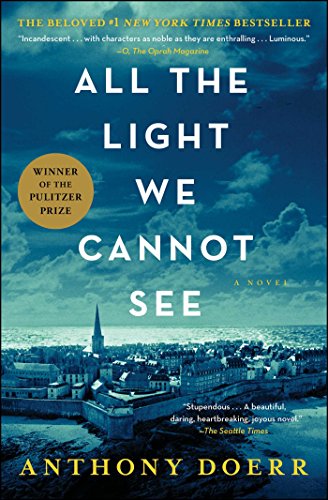
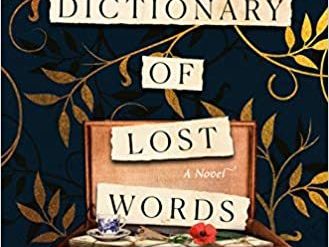
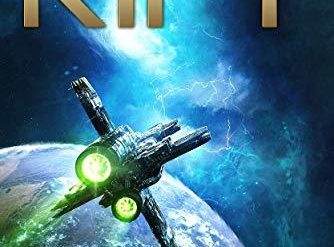
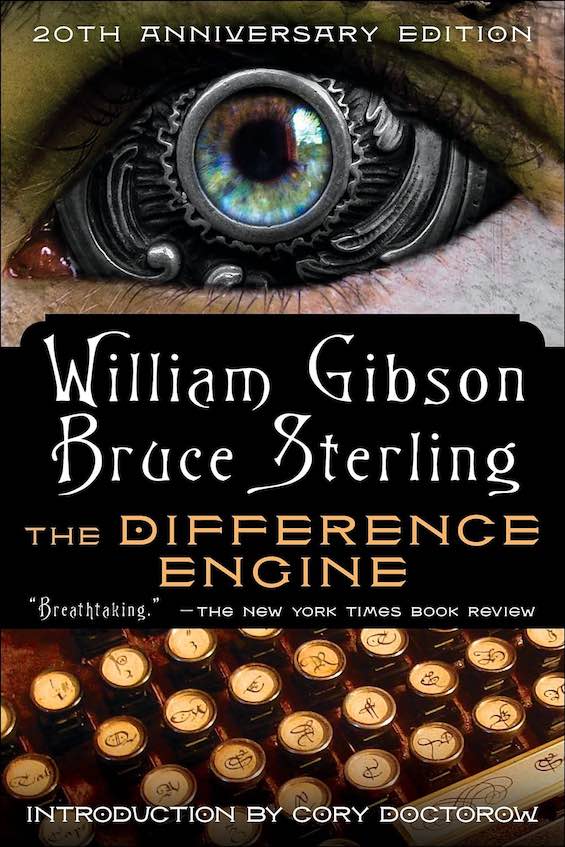
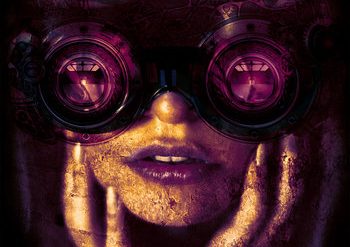






















Can you prune it down to five best so I can persuade my book group to pick one?
Well, that’s nigh unto impossible, given how much I love historical fiction. But, more or less arbitrarily, here are five of the best:
This novel richly deserves the Pulitzer Prize it won (All the Light We Cannot See, by Anthony Doerr)
Hired killers, the California Gold Rush, and lots of surprises (The Sisters Brothers, by Patrick DeWitt)
The strange story of the Sarajevo Hagadah (People of the Book, by Geraldine Brooks)
A fully satisfying murder mystery set in post-war Europe (The Bridge of Sighs (Ruthenia Quintet #1), by Olen Steinhauer)
An author of spy novels to rival John Le Carre (The Prodigal Spy, by Joseph Kanon)